Informationen zur Zeitschrift
Startseite » Programm » IJAR 1-2021 | Action Research, Policy and Politics
IJAR 1-2021 | Action Research, Policy and Politics
Erscheinungsdatum : 28.06.2021
29,00 € inkl. MwSt.
Inhalt
IJAR – International Journal of Action Research
1-2021: Action Research, Policy and Politics
Julia Wittmayer / Koen Bartels / Miren Larrea (guest editors): Introduction: Action Research, Policy and Politics. Special Issue of the International Journal of Action Research
Articles
Simon De Muynck / Dominique Nalpas: The renewal of politics through co-creation: the analysis of the case of rainwater and biowaste in Brussels
Miren Larrea / Hilary Bradbury / Xabier Barandiaran: Action research and politics: power, love and inquiry in political transformations
Martien Kuitenbrouwer: ‘We seem to be moving in circles’. How facilitative action research generates transferable and workable breakthroughs in policy networks that are stuck
György Málovics / Boglárka Méreiné Berki / Melinda Mihály: Policy reform instead of policy transformation? Experiences of participatory action research (PAR) on desegregation policy in Szeged, Hungary
Rebecca Santos: Opinion article. An action researcher in an advisor’s hat: A short reflection on lessons the OECD has learned from undertaking action research in the realm of policy and politics
Download of Table of Contents / Inhaltsverzeichnis herunterladen
Extracts / Leseproben
Download of single articles (Open Access/fee-based): ijar.budrich-journals.com
You can register here for the IJAR alert.
Einzelbeitrag-Download (Open Access/Gebühr): ijar.budrich-journals.com
Sie können sich hier für den IJAR-Alert anmelden.
Zusätzliche Information
| Verlag | |
|---|---|
| ISSN | 1861-1303 |
| eISSN | 1861-9916 |
| Jahrgang | 17. Jahrgang 2021 |
| Ausgabe | 1 |
| Erscheinungsdatum | 28.06.2021 |
| Umfang | 112 |
| Sprache | Englisch |
| Format | 17 x 24 cm |
| DOI | |
| Homepage |
Autor*innen
Schlagwörter(ant)agonism, (de)segregation, action research, action research for transformations; politics; power; emotions, autonomy, bridging, co-creation, designed policy networks, empowerment, evidence based policymaking, facilitative action research, international organization, OECD, participatory action research, policy advice, policy advisory, political ecology, post-political, re-experiencing, relationality, reliving, solidarity, systems thinking, transferability, Transformation
Abstracts
The renewal of politics through co-creation: the analysis of the case of rainwater and biowaste in Brussels (Simon De Muynck, Dominique Nalpas)
In 2015, The Brussels Institute for Research and Innovation (Innoviris) launched an innovative policy in Europe, inviting Brussels research consortia to propose participatoryaction research (PAR) projects. PHOSPHORE and BRUSSEAU worked for three years in and on Brussels socio-technical systems, respectively on biowaste and water management. These research projects revealed many institutional (governance) tensions, and tackled many political issues which this paper analyses because they are still insufficiently explored in the literature. The main contribution of the paper is the discussion of the reflexive learning between the two projects concerning the institutional tensions (reductive injunctions, black boxes, antagonisms, post-political) and moments of confluences (impacts on municipalities strategies and policies, rebalancing of distribution of power, removal of regulatory barriers, emergence of a multi-level and multi-technical approach) we encountered. Keywords: Participatory-action research; co-creation; political ecology; post-political; (ant)agonism
» Buy Single Contribution (Budrich Journals) / Einzelbeitrag kaufen (Budrich Journals)
Action research and politics: power, love and inquiry in political transformations (Miren Larrea, Hilary Bradbury, Xabier Barandiaran)
Motivated by a real case of action research with political aims, we focus attention on the importance of power dynamics and emotional work for all involved in the facilitation and manifestation of new policy. The paper introduces an extension of contemporary action research called Action Research Transformations (ART). In ART, reflexive co-agency operates as a core concept and practice, because it furthers the possibility of moving toward mutuality. This enables policy makers and researchers, working together, to move from power over to power with, and increases the transformative potential of the projects they develop together. Keywords: Action Research for Transformations; politics; power; emotions
» Buy Single Contribution (Budrich Journals) / Einzelbeitrag kaufen (Budrich Journals)
‘We seem to be moving in circles’. How facilitative action research generates transferable and workable breakthroughs in policy networks that are stuck (Martien Kuitenbrouwer, Guillermina Chabrillon and Ingeborg Hedderich)
Action Research can make an important contribution in bringing transformative action to contemporary complex societal problems. Critique upon its limited scope opens the discussion about transferability of outcomes. This paper discusses how facilitative action research enabled transferable and workable breakthroughs to policy practitioners feeling stuck in designed governance networks around complex care and safety problems in the Netherlands. Experiments with facilitated, collaborative conversations of relational inquiry with policy practitioners were conducted in practices in three different cities. Evidence from the three practices suggests that for breakthroughs to be transferable and workable, they need to be able to support a process of reliving and re-experiencing. Reliving and re-experiencing was enhanced when the researcher added a level of abstraction to the conversation by using systems-thinking inspired visuals. This way, policy practitioners were able to grasp the complexity of their situation as well as to see the unintended consequences of their actions. Subsequent naming of the visuals enhanced both the appropriation of the abstracted situation as well as facilitating the broader communication of the experience beyond the group of practitioners involved. Finally, by actively bridging the different practices in three different cities, the researcher was able to connect experiences and so enhance the feeling of reliving and re-experiencing beyond the individual practices. This way, a broader base of knowledge and experience about the problematique, and possible breakthroughs in the complexity of collaboration in designed policy networks, was created. Keywords: Facilitative action research; relationality; systems thinking; designed policy networks; transferability; reliving; re-experiencing; bridging
» Buy Single Contribution (Budrich Journals) / Einzelbeitrag kaufen (Budrich Journals)
Policy reform instead of policy transformation? Experiences of participatory action research (PAR) on desegregation policy in Szeged, Hungary (György Málovics, Boglárka Méreiné Berki, Melinda Mihály)
To move towards more just and ecologically sustainable societies, we must structurally transform our current socio-economic system at a deep level. Participatory Action Research makes much of this term ‘transformation’, yet on closer examination, the concept is not only conceptually but also practically vague. What exactly is required for socio-environmental spatial policies to be ‘transformational’? Our aims in this paper are twofold. First, we want to suggest that there are different definitions of ‘transformation’. We work through three sets of concepts: autonomy, empowerment, and solidarity, showing that there are hegemonic and counterhegemonic versions of each. Secondly, we use these different framings to reflect on a case study exploring the desegregation of a Roma community in Szeged, Hungary. We explore the ways in which the empowerment of Roma community leaders within a PAR project worked both to challenge and to reinforce existing power asymmetries: while Roma representatives were increasingly accepted and influential, they were unable to shift the powerful city council away from an underlying commitment both to desegregation, and to a logic of “deserving” and “undeserving” poor. Ultimately, this led to a situation where the neoliberal hegemonic logic of the policy went unchallenged, with the practical consequence that, while some community members benefitted from desegregation, the poorest were rendered more precarious and vulnerable. This points to a need for further reflection on the intractability of oppressive structures, and honesty about the potential limitations in achieving short-term structural transformation using PAR. Keywords: Participatory action research; (de)segregation; transformation; autonomy; empowerment; solidarity
» Buy Single Contribution (Budrich Journals) / Einzelbeitrag kaufen (Budrich Journals)
An action researcher in an advisor’s hat: A short reflection on lessons the OECD has learned from undertaking action research in the realm of policy and politics (Rebecca Santos)
Action research has enormous potential for policymakers, and those who advise them, to work in more iterative, reflective, and collaborative ways. For complex systems facing wicked problems, any approach that gets it closer to framing a problem well and drawing upon diverse forms of knowledge to bring about change, is good. Advisors who do action research in policymaking or political settings should be sensitive to the fact that this methodology may confound expectations regarding the ‘traditional’ advisor role. As such, some careful navigation of this approach (and what it means for the relationship and perception policymakers may have with those they engage to advise them) is required. This opinion piece shares lessons from an advisor working in the OECD’s innovation team, which embraced the action research methodology to reflect on and design innovative policy interventions with public sector policymakers. Action researchers who are using this methodology to produce policy advice may be more successful in auguring, and better navigating, new kinds of relationships with government if they heed the following lessons: frame the value of action research with decision makers, diversify your data and follow the story, and prime practitioners to participate. Key words: International organization; OECD; evidence based policymaking; policy advisory; policy advice
» Buy Single Contribution (Budrich Journals) / Einzelbeitrag kaufen (Budrich Journals)
Inhalt
Inhalt
IJAR – International Journal of Action Research
1-2021: Action Research, Policy and Politics
Julia Wittmayer / Koen Bartels / Miren Larrea (guest editors): Introduction: Action Research, Policy and Politics. Special Issue of the International Journal of Action Research
Articles
Simon De Muynck / Dominique Nalpas: The renewal of politics through co-creation: the analysis of the case of rainwater and biowaste in Brussels
Miren Larrea / Hilary Bradbury / Xabier Barandiaran: Action research and politics: power, love and inquiry in political transformations
Martien Kuitenbrouwer: ‘We seem to be moving in circles’. How facilitative action research generates transferable and workable breakthroughs in policy networks that are stuck
György Málovics / Boglárka Méreiné Berki / Melinda Mihály: Policy reform instead of policy transformation? Experiences of participatory action research (PAR) on desegregation policy in Szeged, Hungary
Rebecca Santos: Opinion article. An action researcher in an advisor’s hat: A short reflection on lessons the OECD has learned from undertaking action research in the realm of policy and politics
Download of Table of Contents / Inhaltsverzeichnis herunterladen
Extracts / Leseproben
Download of single articles (Open Access/fee-based): ijar.budrich-journals.com
You can register here for the IJAR alert.
Einzelbeitrag-Download (Open Access/Gebühr): ijar.budrich-journals.com
Sie können sich hier für den IJAR-Alert anmelden.
Bibliografie
Zusätzliche Information
| Verlag | |
|---|---|
| ISSN | 1861-1303 |
| eISSN | 1861-9916 |
| Jahrgang | 17. Jahrgang 2021 |
| Ausgabe | 1 |
| Erscheinungsdatum | 28.06.2021 |
| Umfang | 112 |
| Sprache | Englisch |
| Format | 17 x 24 cm |
| DOI | |
| Homepage |
Produktsicherheit
Bewertungen (0)
Bewertungen
Es gibt noch keine Bewertungen.
Autor*innen
Autor*innen
Schlagwörter
Schlagwörter(ant)agonism, (de)segregation, action research, action research for transformations; politics; power; emotions, autonomy, bridging, co-creation, designed policy networks, empowerment, evidence based policymaking, facilitative action research, international organization, OECD, participatory action research, policy advice, policy advisory, political ecology, post-political, re-experiencing, relationality, reliving, solidarity, systems thinking, transferability, Transformation
Abstracts
Abstracts
The renewal of politics through co-creation: the analysis of the case of rainwater and biowaste in Brussels (Simon De Muynck, Dominique Nalpas)
In 2015, The Brussels Institute for Research and Innovation (Innoviris) launched an innovative policy in Europe, inviting Brussels research consortia to propose participatoryaction research (PAR) projects. PHOSPHORE and BRUSSEAU worked for three years in and on Brussels socio-technical systems, respectively on biowaste and water management. These research projects revealed many institutional (governance) tensions, and tackled many political issues which this paper analyses because they are still insufficiently explored in the literature. The main contribution of the paper is the discussion of the reflexive learning between the two projects concerning the institutional tensions (reductive injunctions, black boxes, antagonisms, post-political) and moments of confluences (impacts on municipalities strategies and policies, rebalancing of distribution of power, removal of regulatory barriers, emergence of a multi-level and multi-technical approach) we encountered. Keywords: Participatory-action research; co-creation; political ecology; post-political; (ant)agonism
» Buy Single Contribution (Budrich Journals) / Einzelbeitrag kaufen (Budrich Journals)
Action research and politics: power, love and inquiry in political transformations (Miren Larrea, Hilary Bradbury, Xabier Barandiaran)
Motivated by a real case of action research with political aims, we focus attention on the importance of power dynamics and emotional work for all involved in the facilitation and manifestation of new policy. The paper introduces an extension of contemporary action research called Action Research Transformations (ART). In ART, reflexive co-agency operates as a core concept and practice, because it furthers the possibility of moving toward mutuality. This enables policy makers and researchers, working together, to move from power over to power with, and increases the transformative potential of the projects they develop together. Keywords: Action Research for Transformations; politics; power; emotions
» Buy Single Contribution (Budrich Journals) / Einzelbeitrag kaufen (Budrich Journals)
‘We seem to be moving in circles’. How facilitative action research generates transferable and workable breakthroughs in policy networks that are stuck (Martien Kuitenbrouwer, Guillermina Chabrillon and Ingeborg Hedderich)
Action Research can make an important contribution in bringing transformative action to contemporary complex societal problems. Critique upon its limited scope opens the discussion about transferability of outcomes. This paper discusses how facilitative action research enabled transferable and workable breakthroughs to policy practitioners feeling stuck in designed governance networks around complex care and safety problems in the Netherlands. Experiments with facilitated, collaborative conversations of relational inquiry with policy practitioners were conducted in practices in three different cities. Evidence from the three practices suggests that for breakthroughs to be transferable and workable, they need to be able to support a process of reliving and re-experiencing. Reliving and re-experiencing was enhanced when the researcher added a level of abstraction to the conversation by using systems-thinking inspired visuals. This way, policy practitioners were able to grasp the complexity of their situation as well as to see the unintended consequences of their actions. Subsequent naming of the visuals enhanced both the appropriation of the abstracted situation as well as facilitating the broader communication of the experience beyond the group of practitioners involved. Finally, by actively bridging the different practices in three different cities, the researcher was able to connect experiences and so enhance the feeling of reliving and re-experiencing beyond the individual practices. This way, a broader base of knowledge and experience about the problematique, and possible breakthroughs in the complexity of collaboration in designed policy networks, was created. Keywords: Facilitative action research; relationality; systems thinking; designed policy networks; transferability; reliving; re-experiencing; bridging
» Buy Single Contribution (Budrich Journals) / Einzelbeitrag kaufen (Budrich Journals)
Policy reform instead of policy transformation? Experiences of participatory action research (PAR) on desegregation policy in Szeged, Hungary (György Málovics, Boglárka Méreiné Berki, Melinda Mihály)
To move towards more just and ecologically sustainable societies, we must structurally transform our current socio-economic system at a deep level. Participatory Action Research makes much of this term ‘transformation’, yet on closer examination, the concept is not only conceptually but also practically vague. What exactly is required for socio-environmental spatial policies to be ‘transformational’? Our aims in this paper are twofold. First, we want to suggest that there are different definitions of ‘transformation’. We work through three sets of concepts: autonomy, empowerment, and solidarity, showing that there are hegemonic and counterhegemonic versions of each. Secondly, we use these different framings to reflect on a case study exploring the desegregation of a Roma community in Szeged, Hungary. We explore the ways in which the empowerment of Roma community leaders within a PAR project worked both to challenge and to reinforce existing power asymmetries: while Roma representatives were increasingly accepted and influential, they were unable to shift the powerful city council away from an underlying commitment both to desegregation, and to a logic of “deserving” and “undeserving” poor. Ultimately, this led to a situation where the neoliberal hegemonic logic of the policy went unchallenged, with the practical consequence that, while some community members benefitted from desegregation, the poorest were rendered more precarious and vulnerable. This points to a need for further reflection on the intractability of oppressive structures, and honesty about the potential limitations in achieving short-term structural transformation using PAR. Keywords: Participatory action research; (de)segregation; transformation; autonomy; empowerment; solidarity
» Buy Single Contribution (Budrich Journals) / Einzelbeitrag kaufen (Budrich Journals)
An action researcher in an advisor’s hat: A short reflection on lessons the OECD has learned from undertaking action research in the realm of policy and politics (Rebecca Santos)
Action research has enormous potential for policymakers, and those who advise them, to work in more iterative, reflective, and collaborative ways. For complex systems facing wicked problems, any approach that gets it closer to framing a problem well and drawing upon diverse forms of knowledge to bring about change, is good. Advisors who do action research in policymaking or political settings should be sensitive to the fact that this methodology may confound expectations regarding the ‘traditional’ advisor role. As such, some careful navigation of this approach (and what it means for the relationship and perception policymakers may have with those they engage to advise them) is required. This opinion piece shares lessons from an advisor working in the OECD’s innovation team, which embraced the action research methodology to reflect on and design innovative policy interventions with public sector policymakers. Action researchers who are using this methodology to produce policy advice may be more successful in auguring, and better navigating, new kinds of relationships with government if they heed the following lessons: frame the value of action research with decision makers, diversify your data and follow the story, and prime practitioners to participate. Key words: International organization; OECD; evidence based policymaking; policy advisory; policy advice
» Buy Single Contribution (Budrich Journals) / Einzelbeitrag kaufen (Budrich Journals)
Das könnte Sie auch interessieren:
Verlag Barbara Budrich
- +49 (0)2171.79491-50
- info@budrich.de
-
Stauffenbergstr. 7
51379 Leverkusen
Deutschland




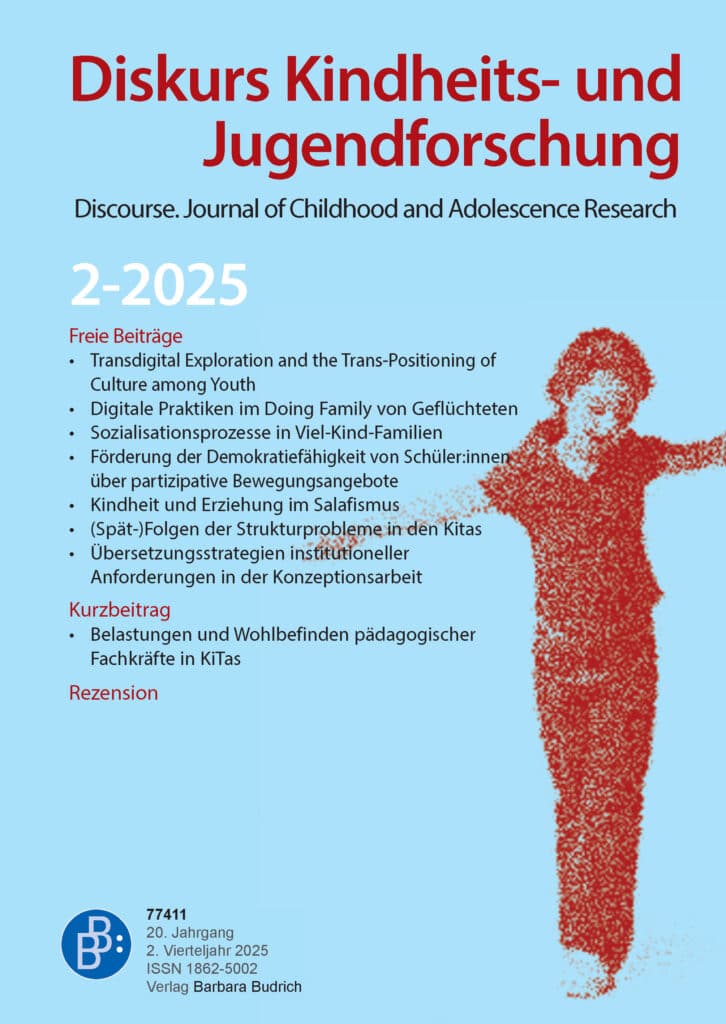
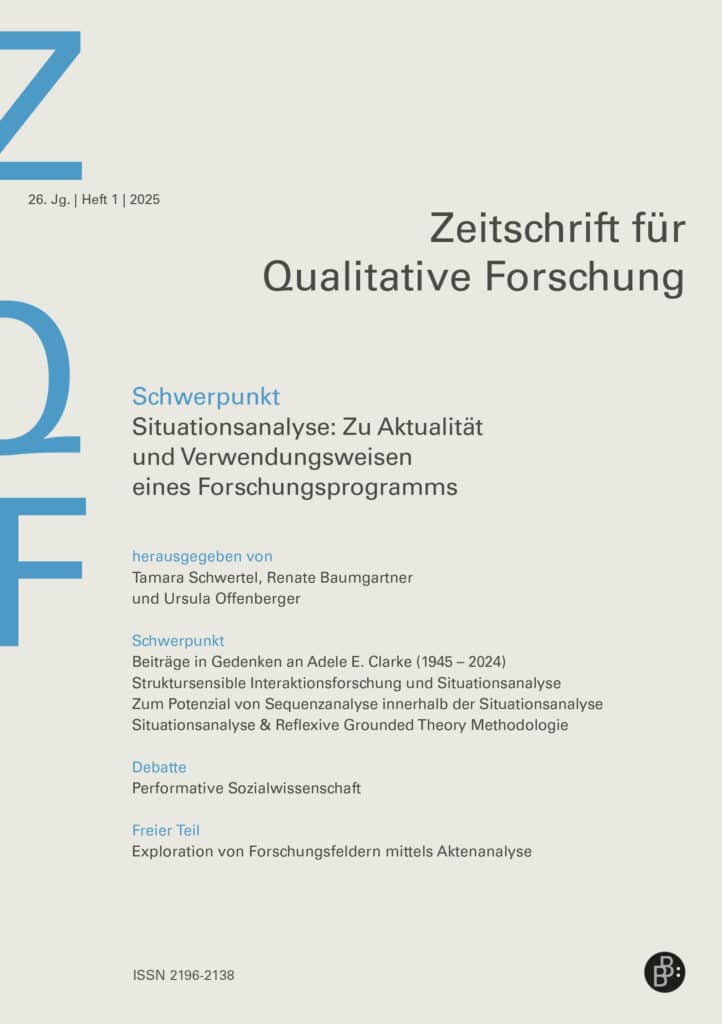
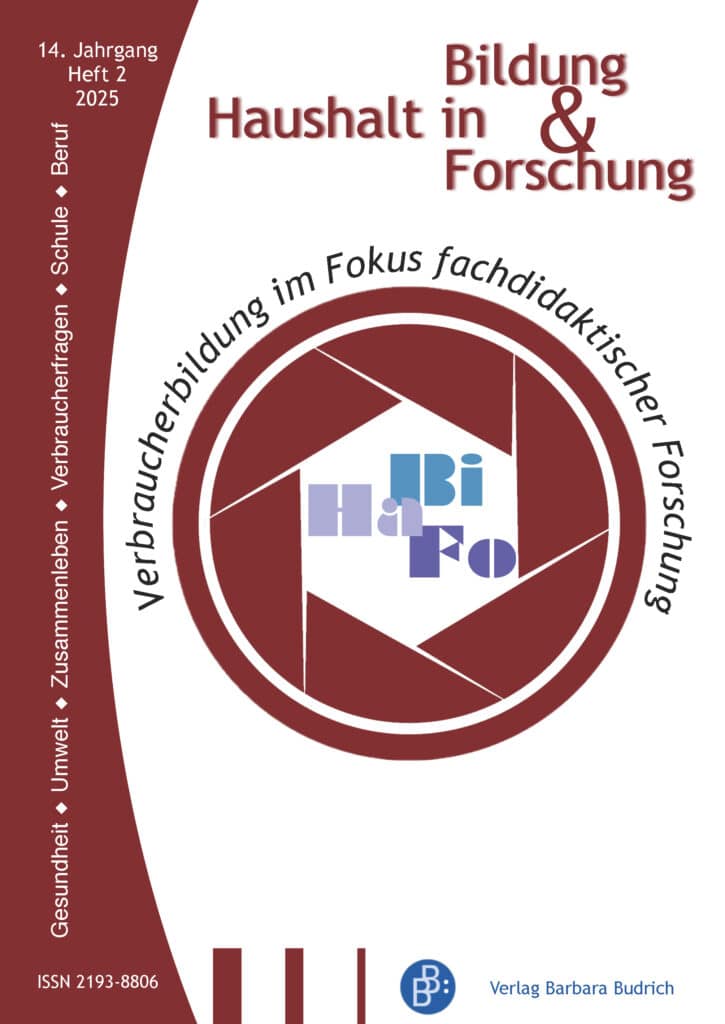
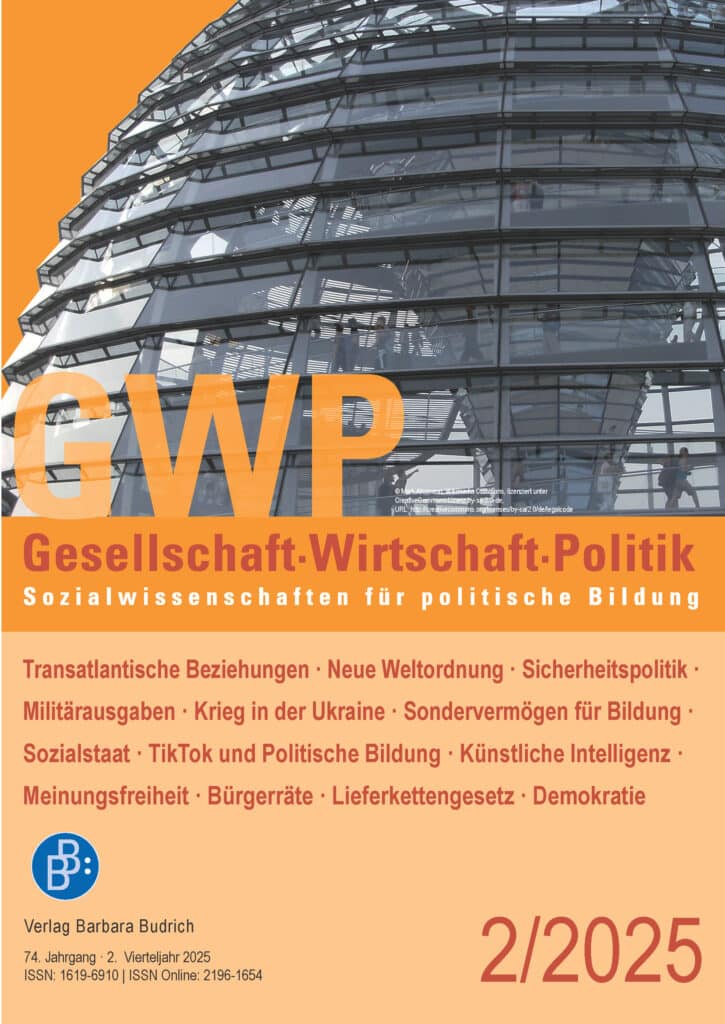
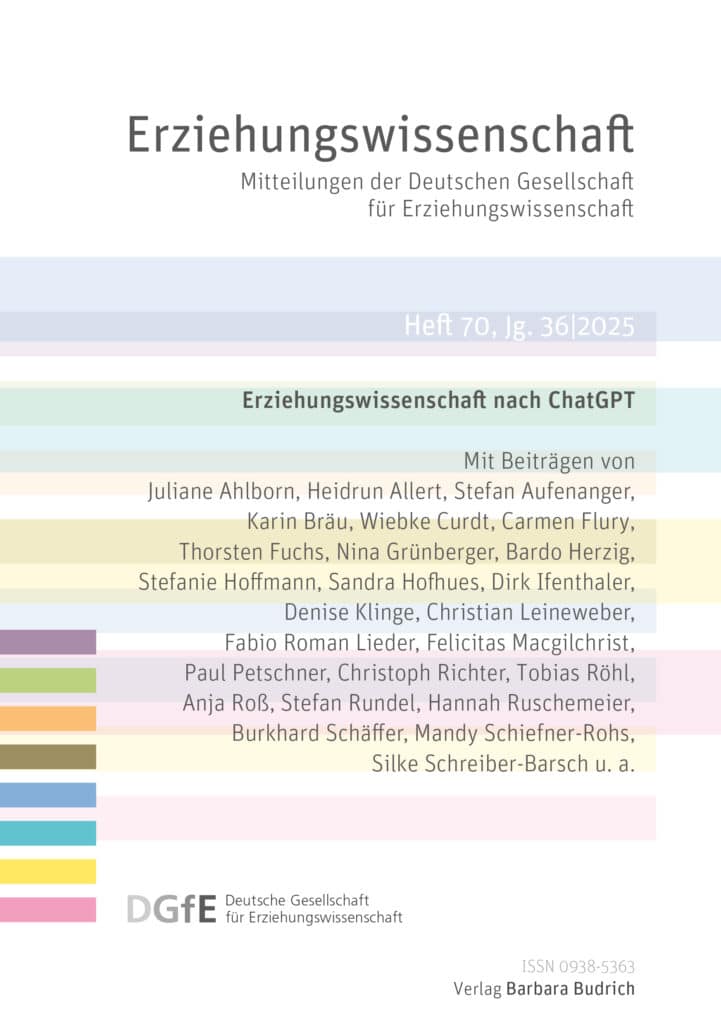

Bewertungen
Es gibt noch keine Bewertungen.